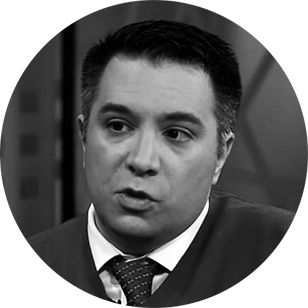Trump's disastrous trip to Asia
His behavior abroad will only confuse our allies and embolden those who seek to weaken our position across the world
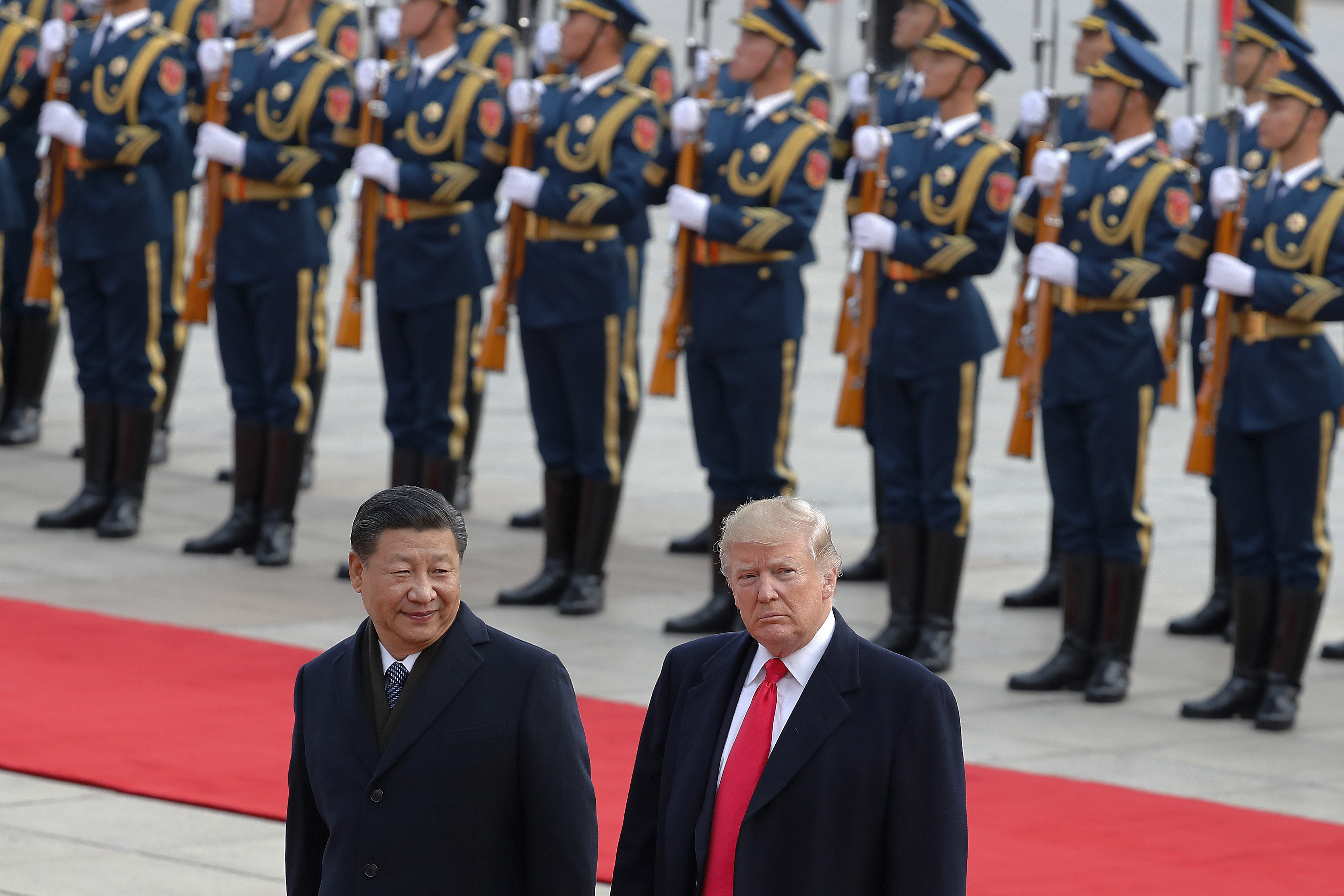
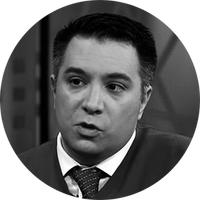
For the United States, there is no more vital region of the world than the Indo-Pacific, a term that describes the land and sea mass running from India to the shores of Hawaii. It is here that the most important foreign policy issues of our time will be addressed: the rise of China and India; a nuclear North Korea; the fate of Taiwan's democracy; control of the vital sea lanes and resources of the South and East China Seas — and that's just for starters.
So President Trump needed to make his blockbuster 12-day visit to Asia count.
At the very least, being a foreign policy novice, Trump could have chosen to say little, listen more, shake some hands, lay some wreaths, and give some forgettable speeches. But alas, instead, what we have is what we should expect nowadays from this White House: a total disaster in words as well as in deeds.
The Week
Escape your echo chamber. Get the facts behind the news, plus analysis from multiple perspectives.

Sign up for The Week's Free Newsletters
From our morning news briefing to a weekly Good News Newsletter, get the best of The Week delivered directly to your inbox.
From our morning news briefing to a weekly Good News Newsletter, get the best of The Week delivered directly to your inbox.
Now, to be fair, President Trump does not have any background in foreign or domestic policy. He walked into the Oval Office having been a branding and reality TV show genius with no political experience. It always seemed that Trump's learning on the job — the most important job on the planet — was going to be a grand experiment of sorts. And specifically on foreign policy, no one expected miracles.
But the leader of the free world should have at least some idea of what is happening across the globe, and some policy strategy to match. Instead, what we saw during Trump's tour of Asia was a series of incoherent rants, no vision or grand strategy for the future, and a strange bromance-style of foreign policy.
While there was a lot that went wrong, five clear trends are worth exploring in-depth.
Strange, alpha-male chest beating: When a head of state is invited as a guest anywhere — and especially overseas to a foreign country — they usually try to be on their best behavior. Not so for President Trump. Asian leaders instead witnessed a spectacle of strange comments that will only reinforce their own negative opinions about this administration.
A free daily email with the biggest news stories of the day – and the best features from TheWeek.com
Take, for example, Trump's remarks in Japan. Standing side-by-side with Prime Minister Shinzo Abe, one of America's most vital allies, he declared: "I don't know if it's [Japan's economy] as good as ours. I think not. Okay? We're going to try to keep it that way. And you'll be second [they are third at the moment, behind China, but who's counting?]." Or, telling a group of Japanese CEOs: "[T]ry building your cars in the United States instead of shipping them over. Is that rude to ask?"
While this was all hotly debated, and Japan certainly does build many cars in the U.S. and has created thousands of jobs for many Americans, such comments should be reserved, at the very least, for when the cameras leave the room.
Fast forward to President Trump's comments in Vietnam, a nation that very much wants a closer relationship with Washington, and you see the same strange, angry rhetoric that serves zero strategic purpose. Saying things like "we are not going to let the United States be taken advantage of anymore" is not appropriate for an international setting at a time when America is trying to rally support for confronting North Korea and, at the same time, trying to showcase why Washington, instead of China, should be viewed as the clear leader of Asia.
Bromance foreign policy: They say flattery will get you everything, but when it comes to foreign affairs, it could get you played. Yet President Trump seems to think that wooing America's global competitors like China will somehow pay dividends.
Except it won't. Trump can use every positive sounding word in the book to describe Chinese President Xi Jinping, or tweet out positive videos, or even change his Twitter picture to show warm moments between them. The simple fact remains that China and America have very different visions of how Asia's future will play out. Beijing has one goal: to dominate most of Asia, with America departing the region sooner rather than later. As one Chinese official told me this weekend: "We could care less about Trump's kind words. We care about his actions. That is what will guide our policy."
Trying to be best buds with the leader of a nation with which we share tremendous challenges — think trade imbalances, North Korea, Japan and China's standoff in the East China Sea, the status of Taiwan, and the South China Sea — won't get us anywhere. If anything, it makes us look weak, a narrative China can use to its advantage — and it might already be doing so.
Trump's growing TPP problem: To be fair, the Trans-Pacific Partnership, or TPP for short, was never a great trade deal for the U.S. or its workers. Most estimates have it adding very few jobs in the homeland with only small gains for our economy. And yet, it guaranteed that no matter what, that no matter who is president, no matter what other foreign policy bonfire Washington might be distracted by, Asia would always be front and center, and free trade would be the basis of America's engagement with the region. TPP was always much more than a trade deal; it was the best way for Washington to prove to the region it was committed to its safety, security, and vitality for the long-term, no matter how strong China got or how many nukes North Korea built.
With Trump pulling America out of TPP, it was vital for him in the early days of the administration to do several things: Cement bilateral trade deals with nations like Japan and Vietnam, reassure them of Washington's intentions, and also recognize that the sacrifices politicians across Asia made to cement TPP were not made in vain. Unfortunately for Team Trump, with its hard-line stance toward NAFTA renegotiation talks, as well the fear that Trump might pull America out of the U.S.-Korea free-trade agreement, leaders in Asia seem to be moving on without Washington, coming very close to crafting their own TPP.
And then there is Putin: If I wanted to design the worst possible reinforcing negative narrative for the president, it would be for him to hint, in any way, that he takes Russian President Vladimir Putin's side on anything. And that is what he appeared to do, saying that, when he pressed Putin again on Russia's clear attempt to hijack the 2016 U.S. presidential election, "[H]e said he didn't meddle," and "you can only ask so many times. I just asked him again. He said he absolutely did not meddle in our election. He did not do what they are saying he did." But the real kicker was this gem: "Every time he sees me he says, 'I didn't do that,' and I really believe that when he tells me that, he means it."
Why did he even discuss this topic with the press? Many presidents would see going abroad as a great opportunity to shift the narrative back home in a more positive direction. Instead, Trump brought the spotlight back to the issue he has been trying to avoid. Why not just keep his mouth shut?
Trump did try to do damage control the next day, explaining that, "[A]s to whether I believe it or not, I'm with our agencies, especially as currently constituted with their leadership." But the damage was done.
Trump wants to be "friends" with Kim Jong Un: This might have been the strangest part of the visit — and it all played out on Twitter, with Trump blasting out: "[W]hy would Kim Jong-un insult me by calling me 'old,' when I would NEVER call him 'short and fat?' Oh well, I try so hard to be his friend - and maybe someday that will happen!"
Fat? Friend? What? If you are confused by all that, you certainly aren't alone. Every time I read it I get an instant headache.
But once again, Trump tried to walk it back, and only made matters worse, saying, "That might be a strange thing to happen [being friends with Kim] but it's a possibility." He continued, explaining: "If it did happen it could be a good thing I can tell you for North Korea, but it could also be good for a lot of other places and be good for the rest the world."
Something like friendship shouldn't even be a possibility when it comes to Kim Jong Un. Diplomacy, containment, and deterrence, for sure. But friendship? No. Kim is the head of a nation that has as many as 250,000 people in prison camps, which sends its citizens aboard as slave labor, and is essentially starving its own people to build nuclear warheads. Friendships are reserved for nations who are allies, not mass murders on par with Nazi Germany.
All of this, when mixed together in its totality — and I am leaving out many other strange episodes from this trip, including a perplexing interaction with Philippine President Rodrigo Duterte — will only confuse our allies and embolden those who seek to weaken our position across the world. And at a moment when this administration is under the microscope at home, the timing could not be worse.
Harry J. Kazianis is director of defense studies at the Center for the National Interest, founded by former U.S. President Richard M. Nixon.
-
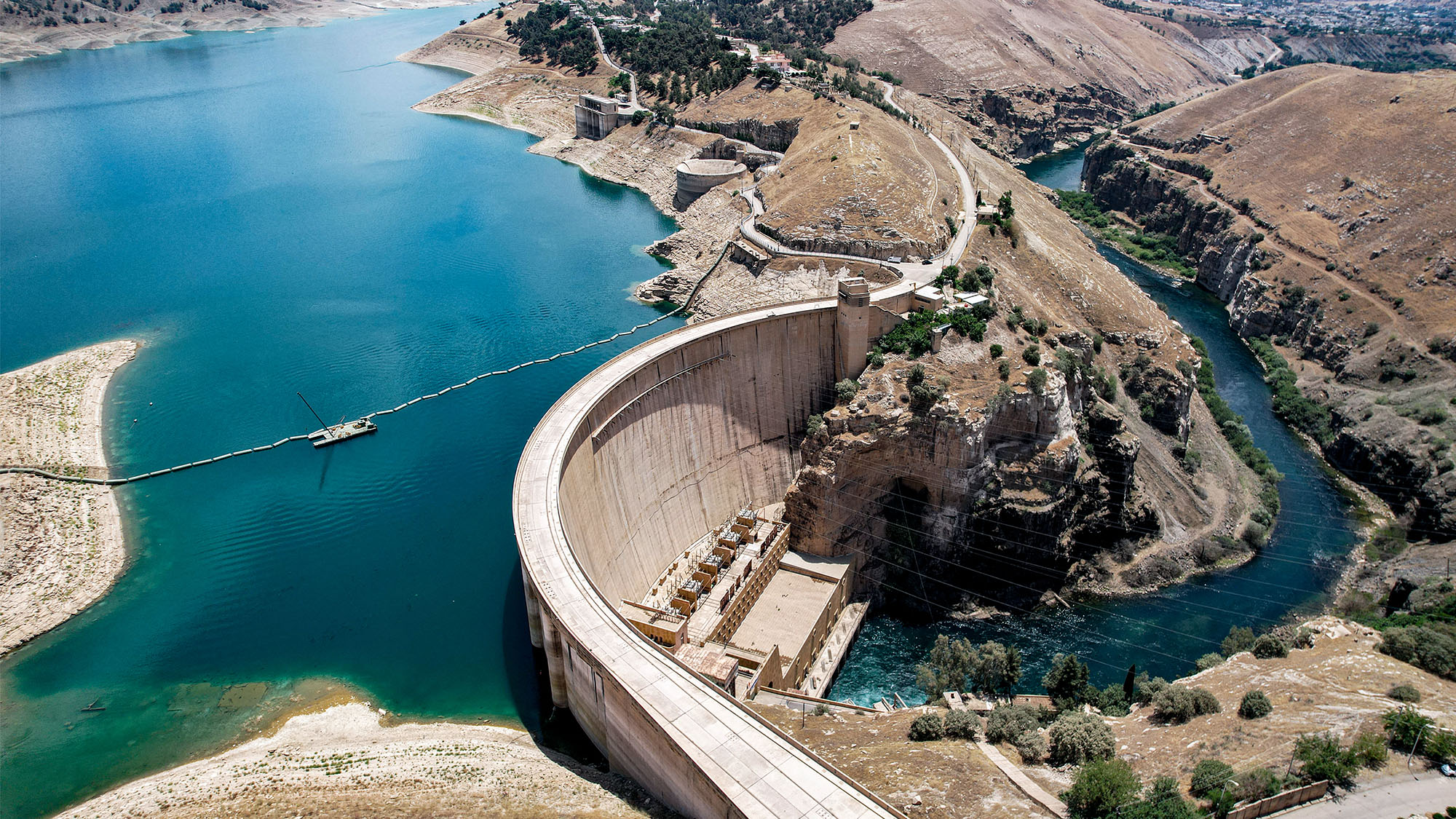 The Week Unwrapped: Will drought fuel global violence?
The Week Unwrapped: Will drought fuel global violence?Podcast Plus why did Trump pardon a drug-trafficking president? And are romantic comedies in terminal decline?
-
 Sudoku hard: December 5, 2025
Sudoku hard: December 5, 2025The daily hard sudoku puzzle from The Week
-
 Sudoku medium: December 5, 2025
Sudoku medium: December 5, 2025The daily medium sudoku puzzle from The Week
-
 Femicide: Italy’s newest crime
Femicide: Italy’s newest crimeThe Explainer Landmark law to criminalise murder of a woman as an ‘act of hatred’ or ‘subjugation’ but critics say Italy is still deeply patriarchal
-
 Brazil’s Bolsonaro behind bars after appeals run out
Brazil’s Bolsonaro behind bars after appeals run outSpeed Read He will serve 27 years in prison
-
 Americans traveling abroad face renewed criticism in the Trump era
Americans traveling abroad face renewed criticism in the Trump eraThe Explainer Some of Trump’s behavior has Americans being questioned
-
 Nigeria confused by Trump invasion threat
Nigeria confused by Trump invasion threatSpeed Read Trump has claimed the country is persecuting Christians
-
 Sanae Takaichi: Japan’s Iron Lady set to be the country’s first woman prime minister
Sanae Takaichi: Japan’s Iron Lady set to be the country’s first woman prime ministerIn the Spotlight Takaichi is a member of Japan’s conservative, nationalist Liberal Democratic Party
-
 Russia is ‘helping China’ prepare for an invasion of Taiwan
Russia is ‘helping China’ prepare for an invasion of TaiwanIn the Spotlight Russia is reportedly allowing China access to military training
-
 Interpol arrests hundreds in Africa-wide sextortion crackdown
Interpol arrests hundreds in Africa-wide sextortion crackdownIN THE SPOTLIGHT A series of stings disrupts major cybercrime operations as law enforcement estimates millions in losses from schemes designed to prey on lonely users
-
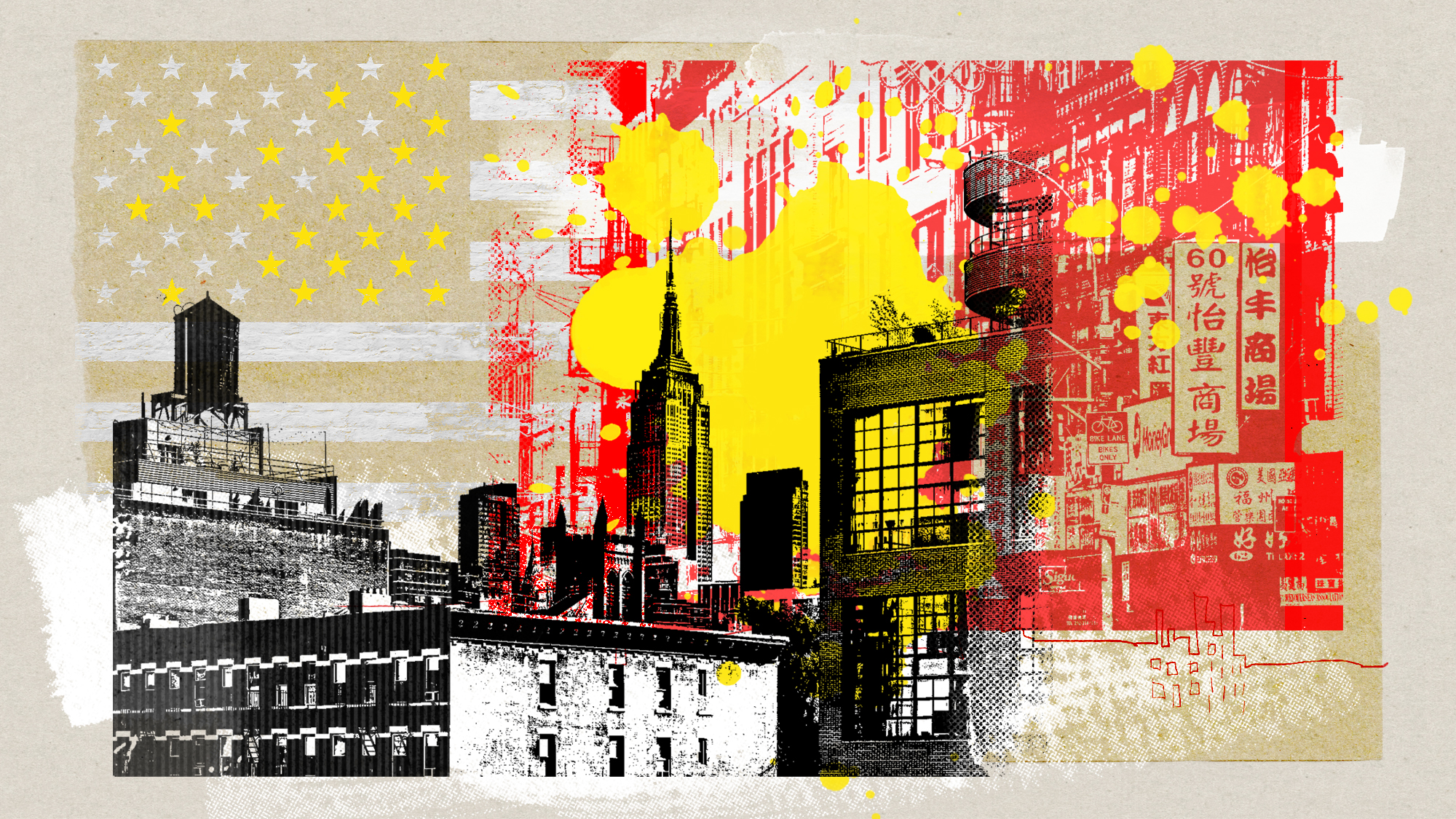 China is silently expanding its influence in American cities
China is silently expanding its influence in American citiesUnder the Radar New York City and San Francisco, among others, have reportedly been targeted
